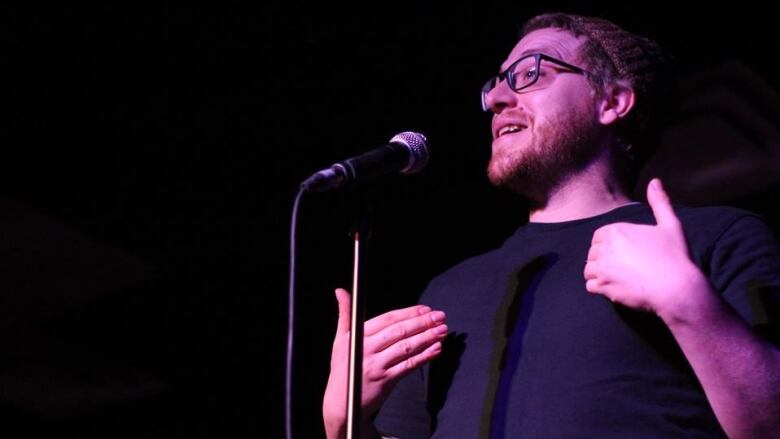'I have led women on, I've cheated': One man's #IHave story
one-mans-facebook-post-shares-how-hes-been-part-of-the-problem

While the #MeToo movement of women sharing their stories of rape, sexual assault and sexual harassment was started over 10 years ago by activist Tarana Burke, the movement gained renewed attention recently after the accusations against film mogul Harvey Weinstein came to light and actress Alyssa Milano called on women to share their experiences using the hashtag.
Scores of women shared their stories, while some men took the opportunity to join in the online conversation with the #IHave hashtag. They recounted ways in which they have abused, silenced or contributed to the oppression of women through their toxic masculinity.
Steve Locke, a spoken word artist in Winnipeg, was one of them. He posted a status update that outlined the ways he was part of the problem.
"I have led women on," said Locke in his Facebook post. "I've cheated, and acted in ways that reflected a sense of entitlement towards the exploitation of women's bodies and behaviours. I've acted in ways that could be described as 'creepy,' both sober and under the influence. I've absolutely been overly defensive when called out for my actions, and have attacked things that certain women loved most about themselves because I felt intimidated by them. The list could go on."

Locke elaborated on his post in a conversation with Now or Never host Trevor Dineen.
Years before, in a heated exchange with a girlfriend, Locke punched the wall. She called him out on it and, because he didn't like that, he punched the wall again before leaving.
"Having walked out of that room and seeing her, the best word to describe it is she cowered, she cowered in my presence, and that made me feel big and powerful when I had felt so intimidated by her," Locke recalled. "I had finally achieved that sense of power."
This was Locke's moment of reckoning. Realizing that this reaction wasn't okay, Locke started going to therapy, which is something he still does today.
"How could I do that to someone I loved? There was a great cognitive dissonance and my brain was just scrambled," said Locke. "I've spent the last seven years or so trying to unscramble it."

Now, Locke tries to call out sexist and misogynist behaviour when he sees it. For instance, one time when he was riding the bus with an ex-girlfriend and his best friend, Locke's friend made an insulting comment about his ex. He called her a "slut" and Locke called him out for it. This was an uncomfortable experience because he had to say something to his best friend, because they were on a bus, and because his ex was right there. In that moment, Locke got some perspective about what it's like for women when they do the same thing.
"It's really difficult when you're made out to be the bad guy for calling out bad behaviour, and that's been women for all of time," said Locke. "They've called out the bad behaviour and they're put down. They're immediately dismissed."
You can read Steve's full Facebook post here, and listen to his interview above.